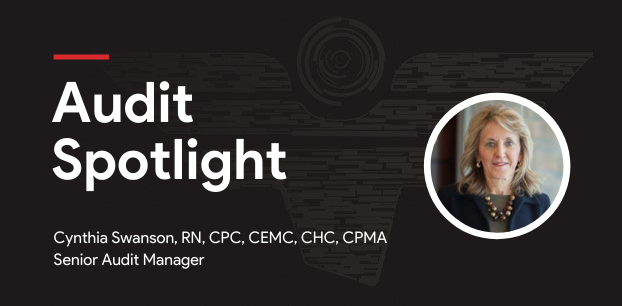
Audit of medical claim identifies hospital error in reported/billed medical professional services
Background
ClaimDOC’ s comprehensive line-by-line auditing of claims uncovers errors that basic claim repricing and auto-adjudication does not catch, leading to greater savings to health plans and beneficiaries. Our audit team analyzes all types of healthcare claims for a variety of potential concerns including excessive usual and customary charges, duplicate claims, correct coding initiative edits, unbundling of services, improper coding/billing of services, and others. Our claims review is not intended to impact care decisions or medical practice.
In this Claims Audit Spotlight, we focus on the coding, billing, and compliant reporting of hospital inpatient charges for facility services and charges for professional services provided during an inpatient hospital stay.
Why are there separate bills from the hospital and from the physician/practitioner?
Receiving separate bills from the hospital and from physicians/practitioners is common. Every hospital visit involves both hospital services and physician/practitioner services. For example, if you go to the hospital emergency room and have laboratory tests, x-rays, and are given medication, you will receive a bill from the hospital for the technical resources the hospital furnishes, as well as a bill from the emergency room physician/practitioner, and a bill from a radiologist, if they review and interpret the x-rays taken.
Why is the same item listed on the hospital bill and the physician’s/practitioner’s bill?
Although the hospital and the physician/practitioner may use similar language to describe each service and related charge, their bills are for separate and distinct services. The hospital bill is for the technical resources, including procedures and medical equipment, medications, supplies, and other services. Physician/practitioner charges are specific to the type(s) of care they provide.
Why are different claim forms used for billing?
Hospital (institutional) charges are billed on a UB-04 claim form. The UB-04 is the standard claim form used by institutional providers for claim billing. The electronic version of the UB-04 is called the 837-I, the “I” represents the institutional format.
Physician/Practitioner charges are billed on a CMS-1500 claim form. The CMS-1500 claim is the standard claim form used by physicians/practitioners for claim billing. The electronic version of the CMS-1500 is called the 837-P, the “P” represents the professional format.
Depending on the scenario, there can be multiple physician/practitioner claims for services provided during an inpatient hospital stay. For example, separate charges may be submitted by ER physicians, hospitalists, radiologists, pathologists, cardiologists, internists, infectious disease specialists, anesthesiologists/CRNAs, and others.
As noted above, charges for physician/practitioners/medical professionals are required to be reported separately on the CMS-1500 claim form or electronic equivalent to Medicare and most commercial health plans. (An exception to reporting/billing requirements allows Critical Access Hospitals (CAHs) to report/bill professional services on a hospital outpatient hospital claim when Medicare’s Method II/Optional Method is elected).
Case Scenario
Outlined below is a claim example where the ClaimDOC audit team identified the hospital incorrectly reported/billed medical professional services on the inpatient hospital claim.
A Maine hospital submitted its hospital inpatient claim and related charges to insurance with total charges of $140,894.58. The inpatient hospital services included a five-day stay for the treatment of coronary artery disease with occlusion and stenosis of the left carotid artery. High dollar charges included operating room for $46,724.00 and room and board for $20,910.00.
During our analysis of the hospital claim and hospital itemized bill, we identified the incorrect hospital billing of professional general fees for $20,477.00 and professional anesthesia fees for $6,437.00, totaling $26,914.00. These professional fees should not be reported and billed on the acute care hospital UB-04 claim, rather they should be reported and billed on the CMS-1500 claim form.
$140,894.58 total billed charges, allowed $36,590.91. 74% reduction based on pricing using Medicare DRG with markup.
- Total hospital charges: $140,894.58
- Medicare pricing based on DRG 236 – $29,272.73
- ClaimDOC Pricing: $36,590.91 based on Medicare DRG rate with markup
- Plan Savings: $104,303.67
- Percentage of Savings: 74%
The Takeaway
Analyses of the hospital claim and itemized bill identified the incorrect reporting and billing of professional services on the inpatient hospital claim. While hospitals may elect to bill and charge any amount they elect for services(s) provided, incorrect billing and egregious charges can complicate matters for members to understand their bills and payments, impact the collection of patient balances, build a reputation of unbundling services, and/or charging high fees, create burdens for uninsured patients and a host of other concerns.
Our goal at ClaimDOC is to use benchmark charges and costs nationally to negotiate fair and ethical payments. Employers turn to us to establish fair reimbursement rates for their plans allowing them to save money and provide richer benefits to their employees. A win-win for everyone.